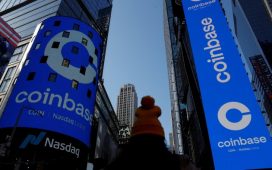Being able to heat a home and put food on the table are two of the most basic requirements I can think of.
But for many households, both will get harder from April 1 as energy prices rise.
The Government’s ‘price guarantee’, which trumps the price cap from regulator Ofgem, is rising from £2,500 to £3,000.
And higher energy bills are not the only way household finances will be squeezed next month, with other bills rising, too.

Households face the baffling position of higher energy bills from April 1 – despite the Ofgem price cap falling because the Government price guarantee is rising from £2,500 to £3,000
Supermarket inflation has hit a high of 17.1 per cent — then there’s hikes to council tax, water rates, mobile and broadband contracts. It’s safe to say we’re being clobbered left, right and centre.
The Government’s energy support measures have cost tens of billions of pounds.
Yet, bafflingly, energy bills are rising just as wholesale costs are falling. Work that one out.
One silver lining is the British weather should warm up from April, meaning less gas will be used for heating and, in turn, there will be the potential for smaller bills depending on how you use energy.
Ministers will undoubtedly face calls from campaigners to keep the energy price guarantee at the today’s £2,500 rate. Whether they should is a tough call.
It is a question of affordability and politics. Ministers must decide whether they can live with more families and elderly people making sacrifices in their lives to absorb astonishingly high bills.
There will still be some support available for vulnerable and low-income households.
One thing is for sure, the support has been a vital lifeline, especially for those most in need.
And I’d argue it’s far better to spend money on keeping us warm than on the relentless push to install heat pumps and smart meters.
Historic hit
Have you heard the story of three pristine VHS copies of boxing film Rocky selling for $53,750 (£44,000) at a U.S. auction last month?
They were factory-sealed and included as part of a time capsule made by a father for his son in 1982. The son was then allowed to open the trunk filled with goodies on his 40th birthday.
That year saw the release of Rocky III, and the father added a VHS tape of it alongside sealed copies of Rocky and Rocky II for good measure.
I always thought of time capsules as a naff oddity. But this story has made me think twice.
They could actually be a good long-term investment — especially in a digital world where buying physical copies of films, music and games is dying out.
What would you bury for your child or grandchild born today? Choose wisely — it could be a knockout investment!
Branch void
How long does it now take you to reach your local bank branch?
As they shut in villages, towns and cities across Britain, one in five now say they face an hour round trip just to get to theirs.
Whether that journey is made on our unreliable bus network or by driving to a different town and paying to park to do everyday banking tasks, it’s the older and vulnerable who always seem to suffer most.
More than half of branches have vanished in the past decade as networks are cut to the bone. Those who don’t feel comfortable banking on the internet have ever-dwindling options.
Let me know about the epic journey you now face in the quest for basic banking…
Veg horror
With reported shortages of fruit and vegetables, I have two nuggets of wisdom that may help you.
Firstly, if fruit or veg is about to turn, most of it can be chopped up and lobbed in the freezer — or blitzed into a new meal — instead of being chucked.
Vegetables nearing the end of their life, steamed and blended with passata, make a great pasta sauce for none-the-wiser yet fussy toddlers.
Secondly, watch out for profiteers. One of my colleagues told me this week that her local supermarket didn’t have peppers or onions, so she went to a greengrocer.
The shopkeeper wanted £4.50 for three peppers and one onion. That really is a case of knowing your price point (and your onions).
l.boyce@dailymail.co.uk
Some links in this article may be affiliate links. If you click on them we may earn a small commission. That helps us fund This Is Money, and keep it free to use. We do not write articles to promote products. We do not allow any commercial relationship to affect our editorial independence.











